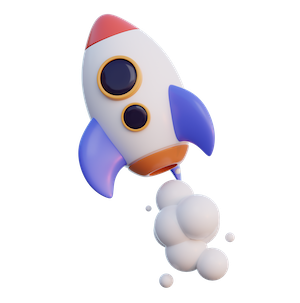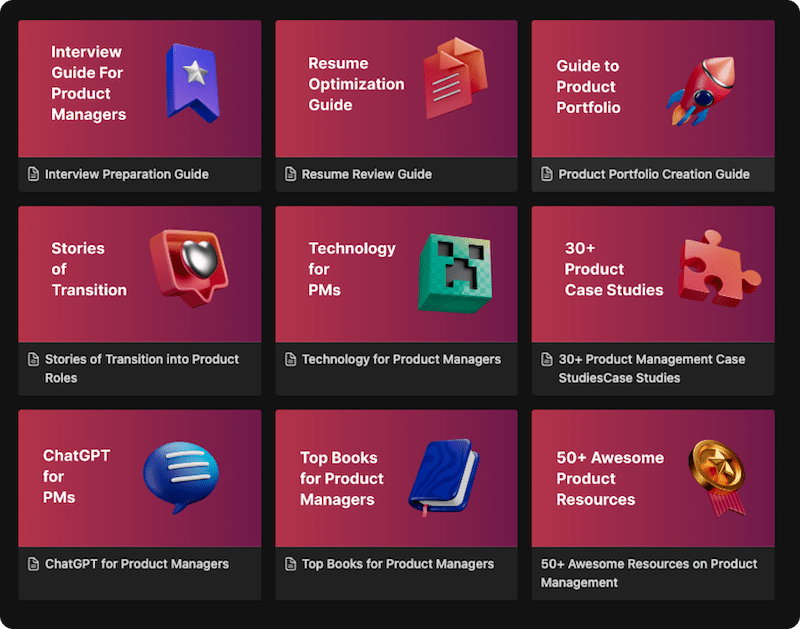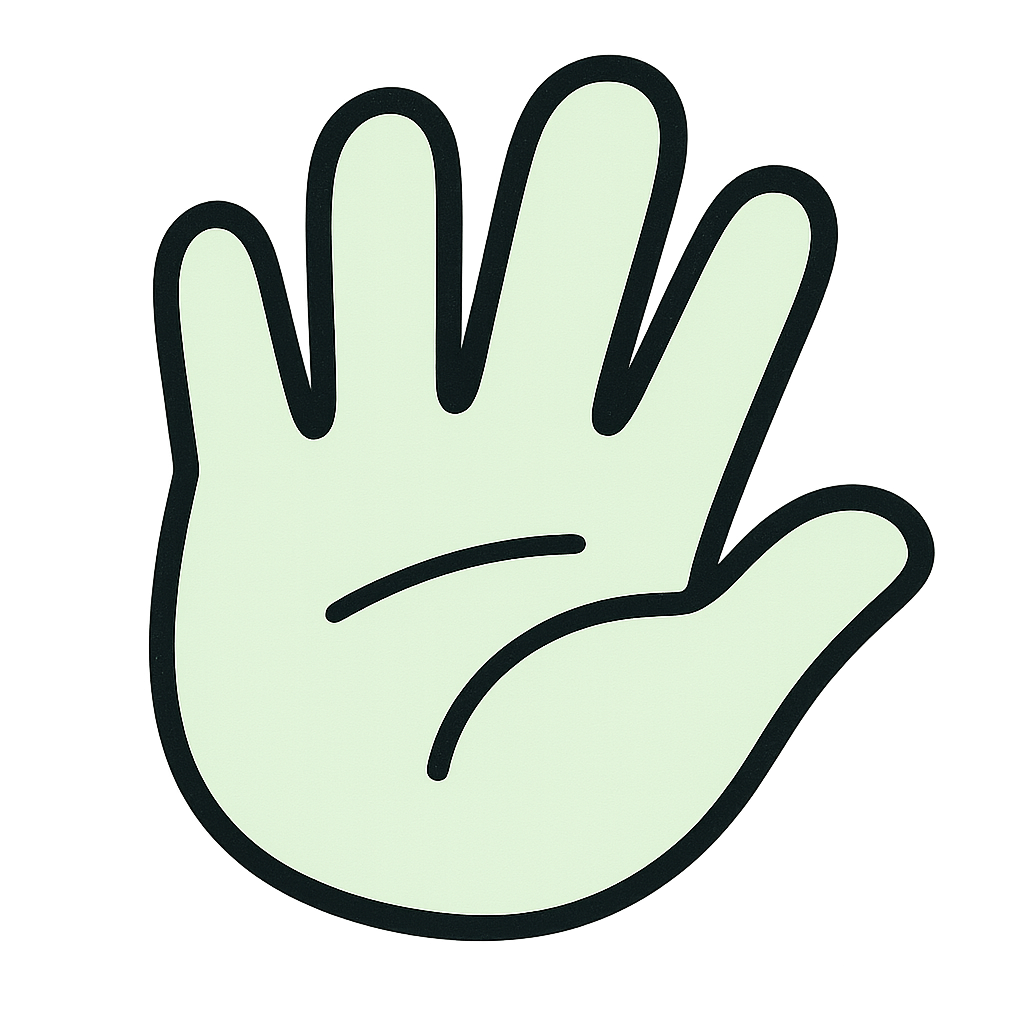Product Managers are always struggling to find time between never-ending meetings, documentation, prioritization, and then some more meetings.
While at this point in time we all know how powerful Open AI’s ChatGPT is, let’s see if it can help you save some time as a product manager and give you more room for strategic work.
In this post, I’ll share 10 ways in which Product Managers can use Open AI’s ChatGPT to level up their game.
But before we could here is a start a word of caution: 👇🏽
“Use chatGPT as your automated co-pilot which can help you save time, create initial drafts, summarize stuff, etc. Do not try to rely completely on chatGPT as it hallucinates, sometimes gives wrong information, and is trained on data from the past.
Also, ChatGPT is not a replacement to talking to your users, using your domain expertise, and using your stakeholder management skills. At least not in its current version.”
With that out of the way, let’s start! How can Product Managers use ChatGPT
1. ChatGPT can help you do quick market research.
You can use it for finding competitors, and alternatives, performing market sizing, summarizing value props of your competitors, and more.
Here are a few helpful prompts to help you get started:
💡Prompt 1: I am creating a {music streaming app for people who regularly visit the gym}. Can you help me with a list of competitors in this space, their value propositions, and their weaknesses? Please put data in a tabular format.
Here is what chatGPT produced.
Pretty neat, right?
💡Prompt 2: What could be the total addressable market for the app idea I referred to earlier? Segment the market in sub-categories and include Go To Market pointers as well.
ChatGPT has returned with a formula to find the market size, an estimate of the market size (183 million gym goers). It broke the audience into personas like casual gym goers, fitness enthusiasts, trainers, and more.
It also gave me a glimpse into how I can use social media, influencer marketing, partnerships, and more to launch this product.
This would definitely save a lot of time and cover some blind spots in our approach.
💡Prompt 3: Use the information I am giving below and tell me the pros and cons of using this product: {Paste the whole homepage content from your competitor’s website}
ChatGPT will not only summarize the benefits (which would be highlighted on the website as well), but it can also tell you the possible cons of the product, which can then become an opportunity for you.
💡Prompt 4: Perform {SWOT, PESTLE, Porter’s 5 force} Analysis on {Competitors Name}
Great way to save yourself a lot of time in doing a standard yet extremely helpful type of analysis.
Take these prompts, add follow-up questions, and save yourself some important time in market research.
2. Use ChatGPT for user research and simulate conversations
Before going into prompts, please understand that there is no replacement for “Talking with real customers”. This exercise is just to do some prelim research.
Here are some helpful prompts to help you conduct effective user research:
💡Prompt 1: I want your help in some research with my music app for gym goers. I want you to act as a {fitness enthusiast}. I will ask you questions one by one, you need to understand my prompt and reply by using real stories and events in your life. Do you understand?
Now you can continue with questions.
You can also use ChatGPT to create bias-free questions for the interviews. You can use principles from MOM’s test to create better questions.
💡Prompt 2: Using the principles given in the MOM’s test book. Can you come up with 5 questions I should ask my users of the streaming app?
You can now ask follow-up questions and build some insights around your customer’s journey.
3. Create the first draft of your Product Requirement Document
Starting a document is probably when we feel the most resistance.
ChatGPT can be a lifesaver here. Here are a few prompts to get you started.
💡Prompt 1: I am looking to create a detailed product requirement document, can you give me a quick template to follow along?
Let’s take it a step ahead by being more specific.
💡Prompt 2: Help me create a detailed Product Requirement Document for an Android App which {helps gymgoers listen to music}. Do include all the important details.
Type this in chatGPT and see it take you by surprise.
You can add more context to these prompts and make it a truly customized document.
4. Use ChatGPT to convert features into user stories
User stories help you and your team remain truly user-centric and outcome-focused.
However, converting features into user stories is always a challenge for product managers.
Use these prompts to help yourself:
💡Prompt 1: I am creating a product with the following features: {Paste features here}. Can you help me write user stories from this information?
💡Prompt 2: This is my PRD, can you help me craft user stories from this?
💡Prompt 3: What might be some good user stories to include in a PRD for {app idea}
5. Give it relevant frameworks and find insights
As a product manager, you’ll find yourself using multiple frameworks at your job.
- The AARRR can help you find relevant metrics and map user journeys.
- Jobs to be done can be used to uncover user needs.
- BJ Fogg’s model can help you create compelling habit-forming products.
- Pareto’s principle can help you focus on the most important 20% of items.
and so on. While these frameworks are super helpful, it could be a daunting task to apply them in a context.
ChatGPT is here to help. Use these prompts & leverage these frameworks:
💡Prompt 1: For {a music streaming app} what would the user journey look like using the AARRR framework? Also, tell the important metrics for each stage and opportunities for improvement. Give your answer in a tabular form.
💡Prompt 2: I am a product manager at {AirBNB}, can you give me some ideas to increase {transactions} by using the BJ Foggs model?
Try this in your chatGPT I am sure, you’ll be delighted by the result.
💡Prompt 1: For an app like Spotify, what could be some Jobs to be done for the users? Please explain with different user contexts.
If you don’t know any frameworks, you can even ask ChatGPT:
💡Prompt: What are the most important frameworks I should be knowing as a Product Manager? Explain their use cases.
6. Do a premortem: Ask for the probable reasons why your product might fail and prepare against the same.
A pre-mortem is one of the best things you can do to save your product. In a pre-mortem you ask yourself and your team: Suppose that our product has failed to achieve success. What could be the reasons for that?
This gets everyone to get into a necessary brainstorming mode and can surface some avoidable issues.
You can also do this with ChatGPT. Here are a few prompts to help you get started with pre-mortem:
💡Prompt 1: We have created a music streaming app for fitness enthusiasts. However, it failed to attract any market share. What could be the reasons for the same?
💡Prompt 2: I have done exhaustive user research to come up with problems for my users of the music streaming app. What are the things I could have done wrong here, and how can I improve?
💡Prompt 3: We are all set to launch the product in a couple of weeks. Here is the description of the product {paste PRD}. Can you tell us in case we are not able to ship the product on time what could be the reasons and how to avoid them?
Make these prompts more contextual by adding more information about your situation and asking follow-up questions.
7. Summarize customer inputs and feedback
Just talking to customers, and collecting reviews from the internet and your forum isn’t enough. You need to summarize them and make them actionable for your team.
You can transcribe all your customer interview calls, support calls, and scrape all the conversations around your product and give it to chatGPT to summarize.
You can use the following prompts to get started:
💡Prompt 1: Here is some feedback from our customers. Can you categorize them into Pricing issues, product issues, Usability issues, and some more categories? Also, tell me some action pointers to improve my product.
You can try this prompt by going to any Amazon product page, Google Play page, App Store page, Reddit thread, or G2 Crowd, copying all reviews, and adding to this prompt.
Here is another prompt to help you create FAQs from frequent conversations.
💡Prompt 2: Here are the chat conversations between our support team and customers. Can you create some FAQs based on the same? {Paste chat here}
8. Use it to prepare for your next interview
This could be the most helpful thing for people aspiring for new PM jobs.
A few prompts that can help you here are:
💡Prompt 1: Here is a Job description of a job I am looking to apply for. Can you tell me what skills and questions should I prepare for? {Paste JD}
💡Prompt 2: Here is my resume. Can you tell me what optimization I can do to make it more likely to get selected for this interview? {Paste Resume in text}
💡Prompt 3: Act as an Interviewer for the role of a product manager at {Company}. Ask me 5 questions one by one, wait for my response, and then tell me how I did. You should give feedback in the following format: What was good, where are the gaps, and how to address the gaps?
💡Prompt 4: I am interviewing for this job given in the JD. Can you help me understand the company, its role, its products, main competitors, and challenges for the company?
💡Prompt 5: What are the few questions I should ask at the end of the interview which can help me learn about the culture of the company?
9. Find product metrics and create an event sheet
Explain your feature. Ask for success metrics and L1/L2 metrics. ChatGPT can give you some really good ideas here.
Here is a prompt to help you out:
💡Prompt: What could be the success metrics and L1, and L2 metrics for a music streaming app? Explained in your PRD above?
Powerful! Right?
Now ask follow-up questions and improve the output.
To measure the metrics you also need to capture data. It could be a really daunting task to create an event sheet where all the events and their associated properties are maintained.
Here is a prompt to help you save hours of work here:
💡Prompt: Based on the details above can you create an event sheet that I can give to my developer to fire necessary events to our analytics tool? Make sure you include the event name and all associated properties in the sheet.
You can get into more details as per your requirements.
10. Generate ideas for customer problems. Use it as your brainstorming buddy.
This is an extension of product research. You can throw customer problems found from your user research and ask ChatGPT for some solutions.
💡Prompt: People who exercise often depend on music to give them timely motivation. What could a few ways in which we can create a playlist of such people in our app?
{You can include specific details about your persona and their problems}
💡Prompt: Users are not creating playlists. As they need to click a lot of buttons and take a lot of decisions to make one. What could be some ways to solve this problem?
💡 Prompt: What is that I can do with no-code tools so that I can test my idea of a music app for fitness enthusiasts without having to hire a developer? Tell me the exact process and tools.
Now you can tweak these forms, make them more contextual, and detailed, and carry on with the right follow-up questions.
11. Prepare for your next Product Management Interview with ChatGPT
ChatGPT can act as a great peer to help you prepare for your next product management interview.
Before we jump into the prompts, here is some word of caution:
- Every company has unique demands, roles, and gaps they are trying to fill in. The recommendations given by ChatGPT might not always help.
- ChatGPT can help you create the rightly structured answers, however many interviewers sense the overly scripted answers quickly and ask you follow-up questions that push you to think on your feet. As a PM you need to learn how to think on your feet without depending on any AI tool.
- Do not use chatGPT for your take-home assignment as first thing, you should create the first draft yourself. Do not use ChatGPT if your employer has told you not to.
With those pointers out of the way, here are a few prompts that can help you leverage ChatGPT for your next interview.
Prompt 1:
“I am applying for the position of {PM} at this {company name}. Here is the job description {JD}. Please set the context with this information.”
Note: Copy and paste the Job description. You can also give more context to chatGPT by copying the website content in the chatbox.
Prompt 2:
“Tell me what problem {company name} solves, what are their objectives as a company, and what product goals they have. Also, tell me their major competitors.”
Note: This should give you a fair idea about the company and competing products.
Prompt 3:
“Briefly explain what topics and skills I need to know about to get this job. “
Note: Follow up with questions on those topics, with scenarios.
Prompt 4:
“Here is my resume. Please tell me how should I optimize it for better chances of getting shortlisted for this job “
Note: Copy and send the text of your resume. This can be done while submitting the resume for the job.
Prompt 5:
“Rewrite this resume with actionable power verbs, and quantifiable achievements and make it more relevant to the job description I shared earlier. “
Note: Understand the response and make changes to your resume.
Prompt 6:
“Share 5 questions I can expect in the Product Manager interview at [company name] based on the job and give me pointers on how to answer each.”
Note: You can also find questions from the specific company on the internet (Glassdoor etc. or someone who has given an interview here) and input them here
Prompt 7:
Based on learnings from “Decode and Conquer” by Lewis Lin, and Jackie Bavaro’s “Cracking the PM interview”, how would you answer this question: {X}
Note: This will give you answers based on inputs from these books.
Prompt 8:
“Based on learnings from “Decode and Conquer” by Lewis Lin, and Jackie Bavaro’s “Cracking the PM interview” share 5 questions and their recommended answer strategies for each, in the context of the job description I have shared earlier”
Prompt 9:
“Let’s do a mock interview: Consider yourself as an interviewer and me as a candidate for this job interview for a group product manager at Meesho. Send me the questions one by one and tell me how my response is structured as follows: What is good, and what can be improved?”
Note: This is the ultimate prompt, tweak it here and there to customize it for yourself.
Now create your own prompts and be better prepared for your next interview.
Bonus Use Cases:
We all know ChatGPT is a beast, and it won’t be justice to just limit ourselves to these 10 use cases. Here are some bonus use cases and prompts that might also be helpful for you as a product manager:
- Summarize important books and take actionable outcomes as a product manager:
💡Prompt: What are the important takeaways for a product manager from the book “7 Habits of highly effective people”?
- Explain complicated concepts like a 5-year-old/layman:
💡Prompt: How does a QR code work? Explain in very simple language
- Create high-level concept notes, and 1 pagers/6 pages:
💡Prompt: I am looking to work on a ride-sharing app, where Electric Vehicles will be used to keep it affordable and clean. Generate a 1 pager to help me align me to present this to the leadership team.
- Generate ideas for your product portfolio. Find the complete guide here.
💡Prompt: I am looking to find a product manager job in the financial technologies sector. I want to create a strong product portfolio to showcase my abilities as a product manager candidate for such companies. Can you give me some ideas for the reports, cases, and projects I can include in my product portfolio?
- Create outreach message drafts for reaching out to partners, employers, and hiring managers on LinkedIn/email.
💡Prompt: Write a cold email for Hiring Manager at {company} who is looking to hire a product manager. You can include information from my resume here to make it more contextual.
and thats it.
Although this guide seems exhaustive (10+ use cases, 30+ prompts) this is still like scratching the surface of ChatGPTs potential.
I will keep on updating this guide as I find more interesting and helpful use cases.
In case you have some, do connect with me on linkedin and send them here.
If this guide was helpful for you consider sharing it with your product manager friends or folks who are looking to enter into product management. I am sure they’ll thank you later.
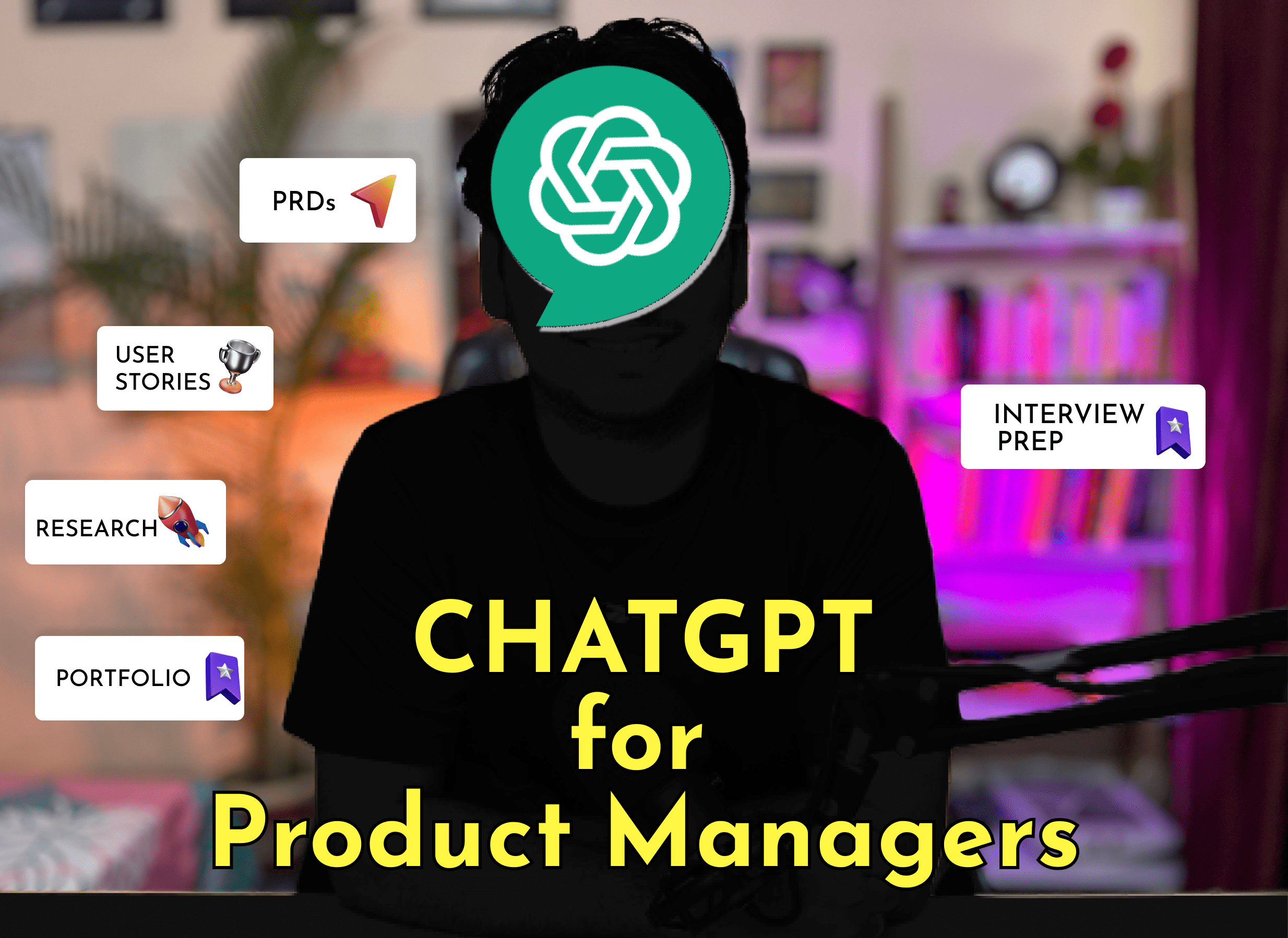
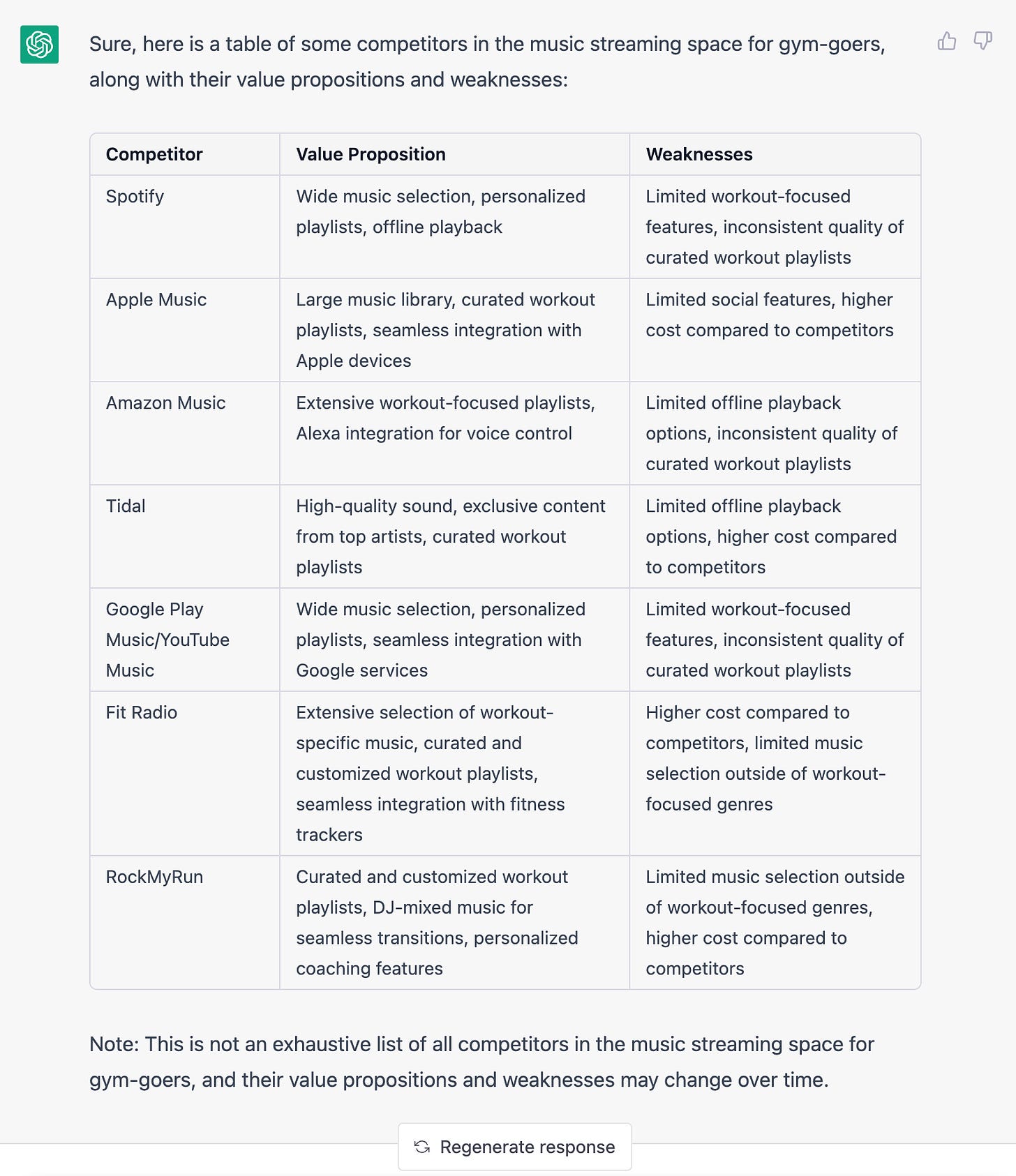
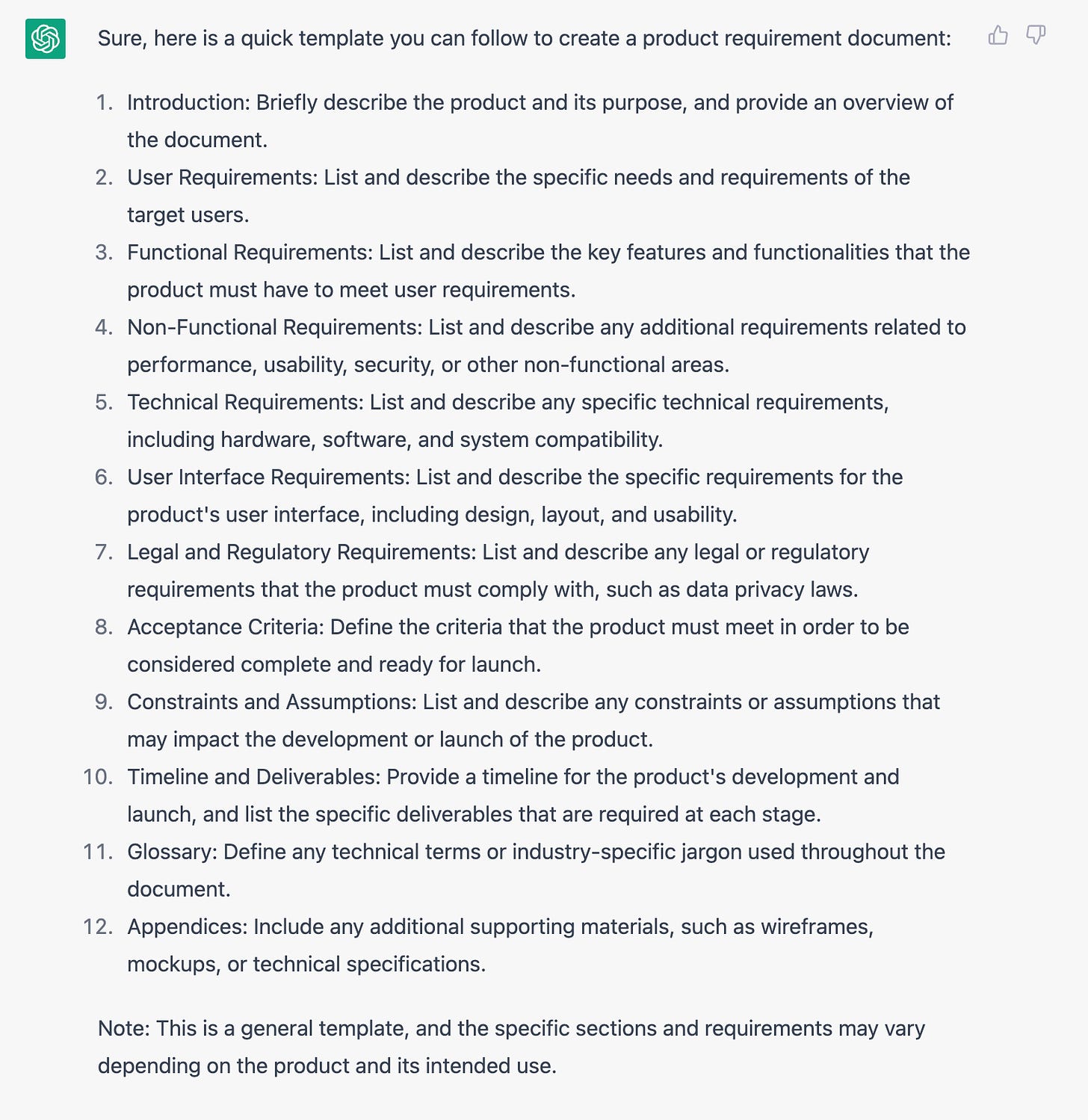
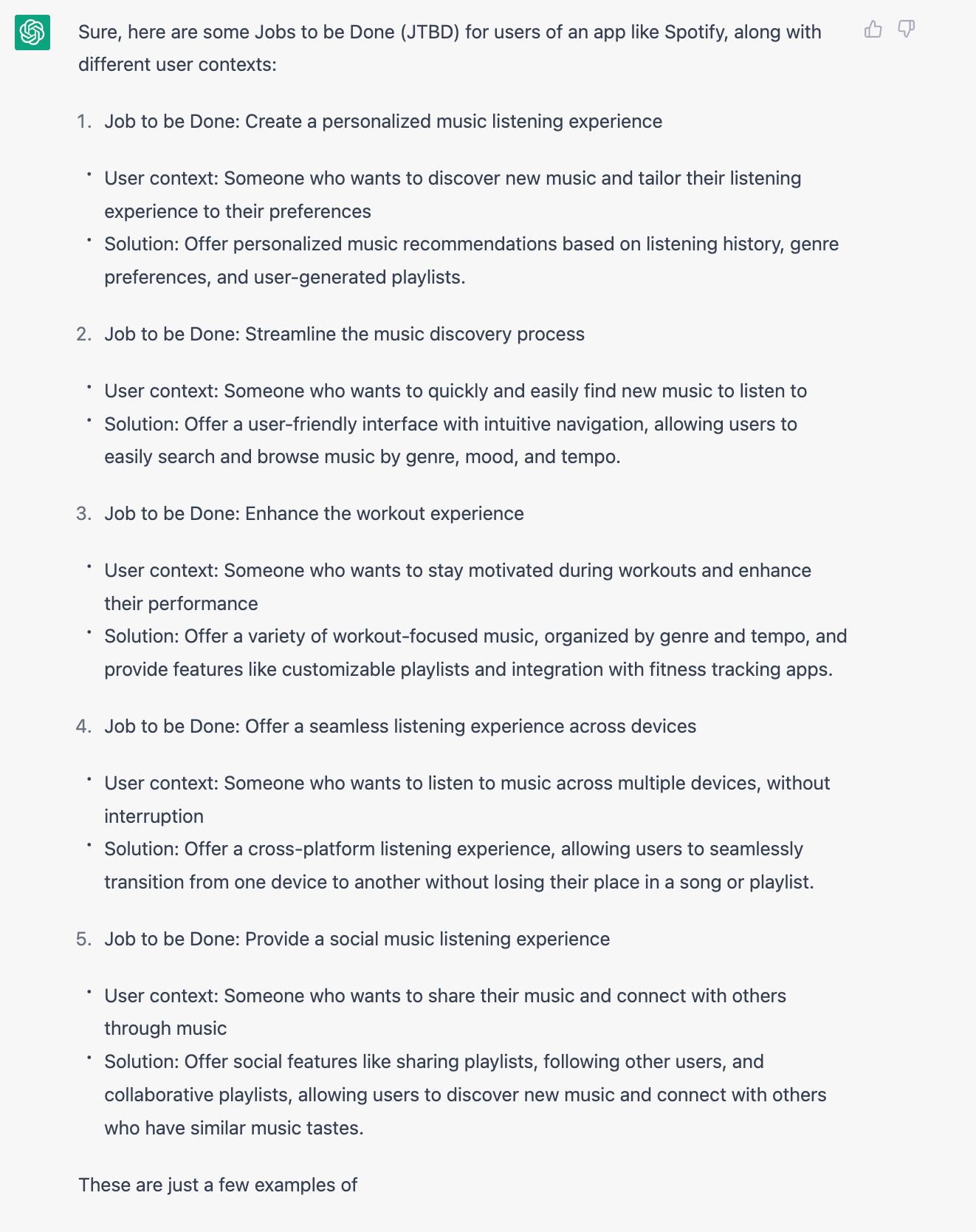
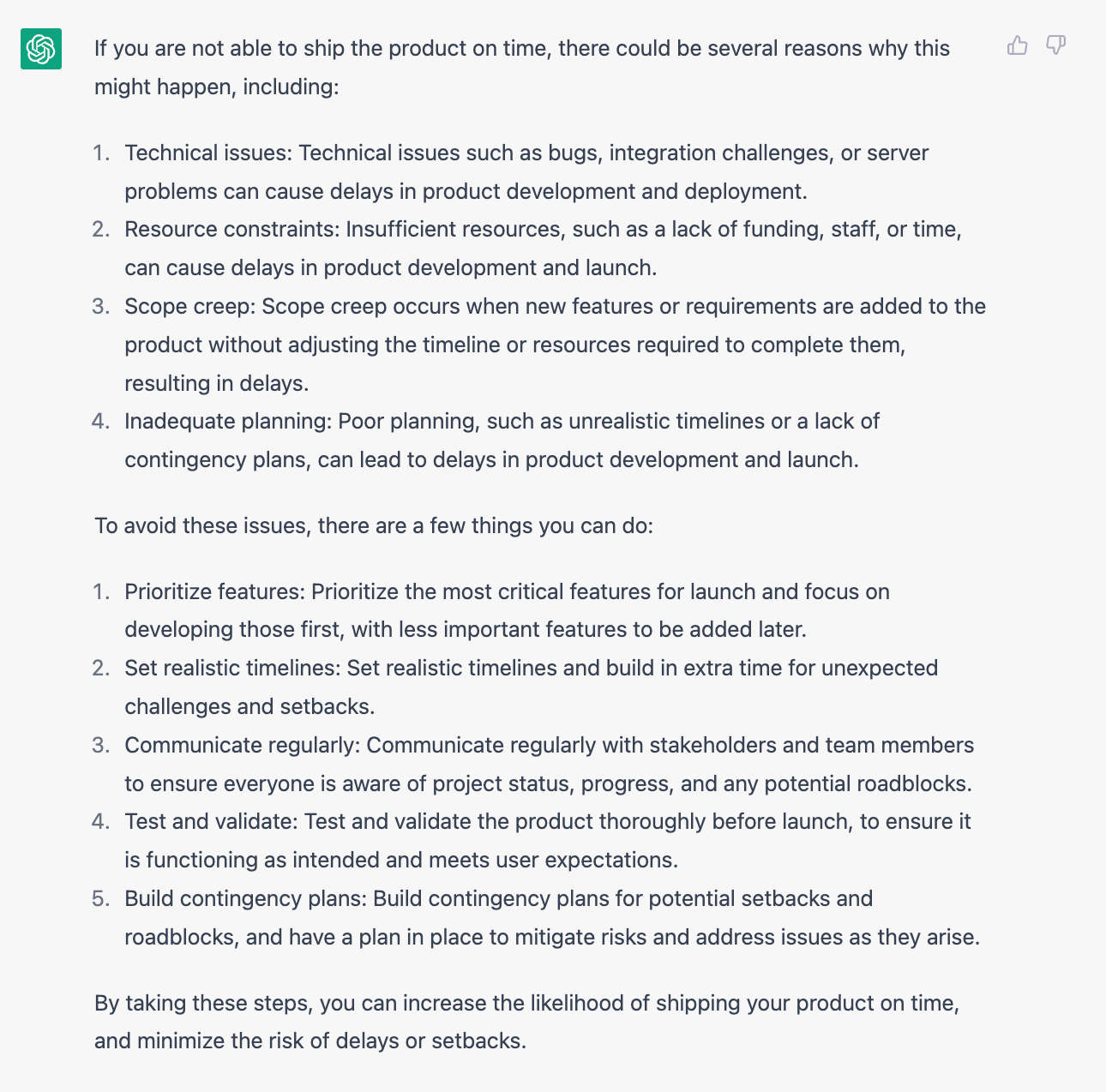
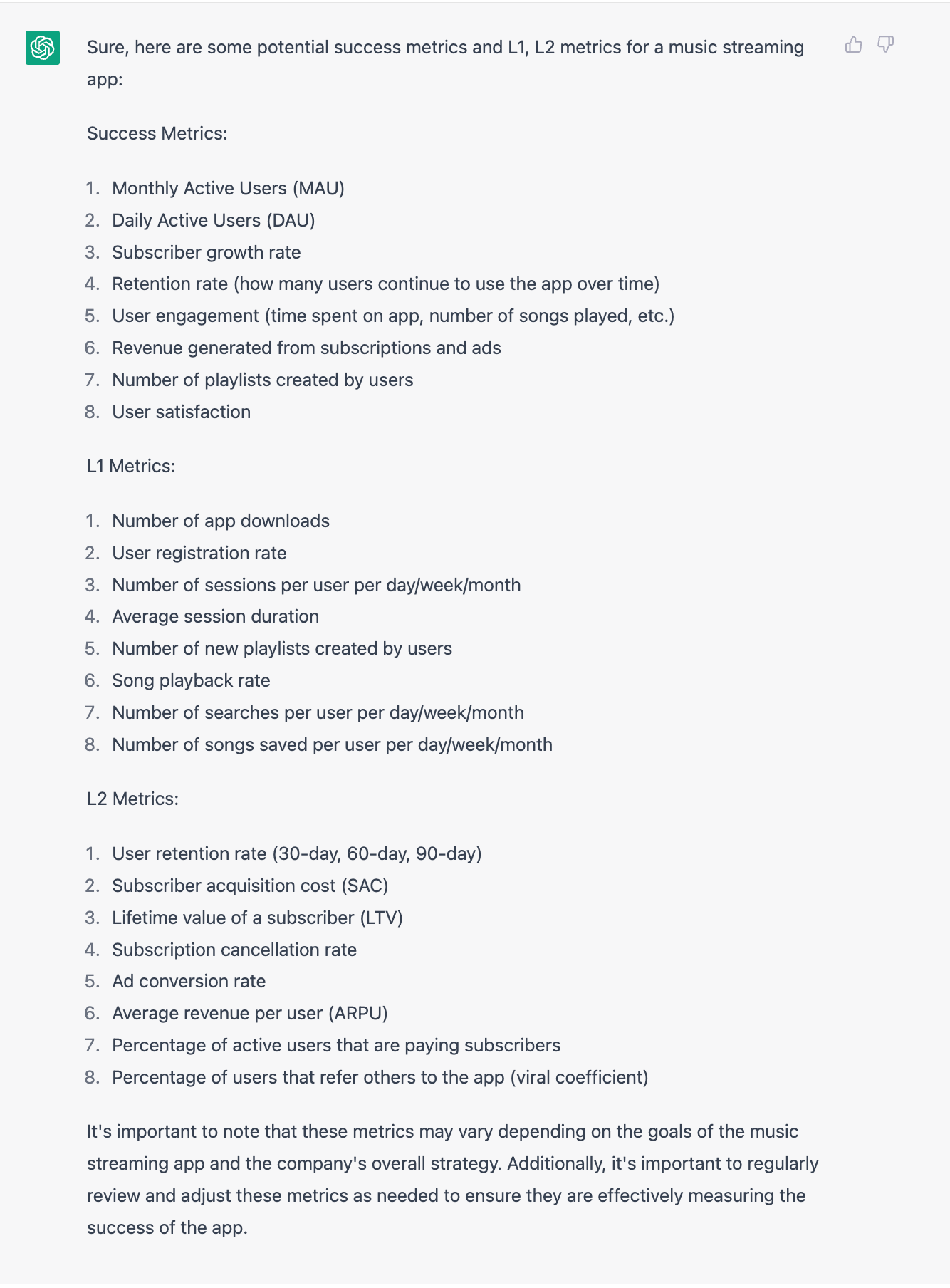
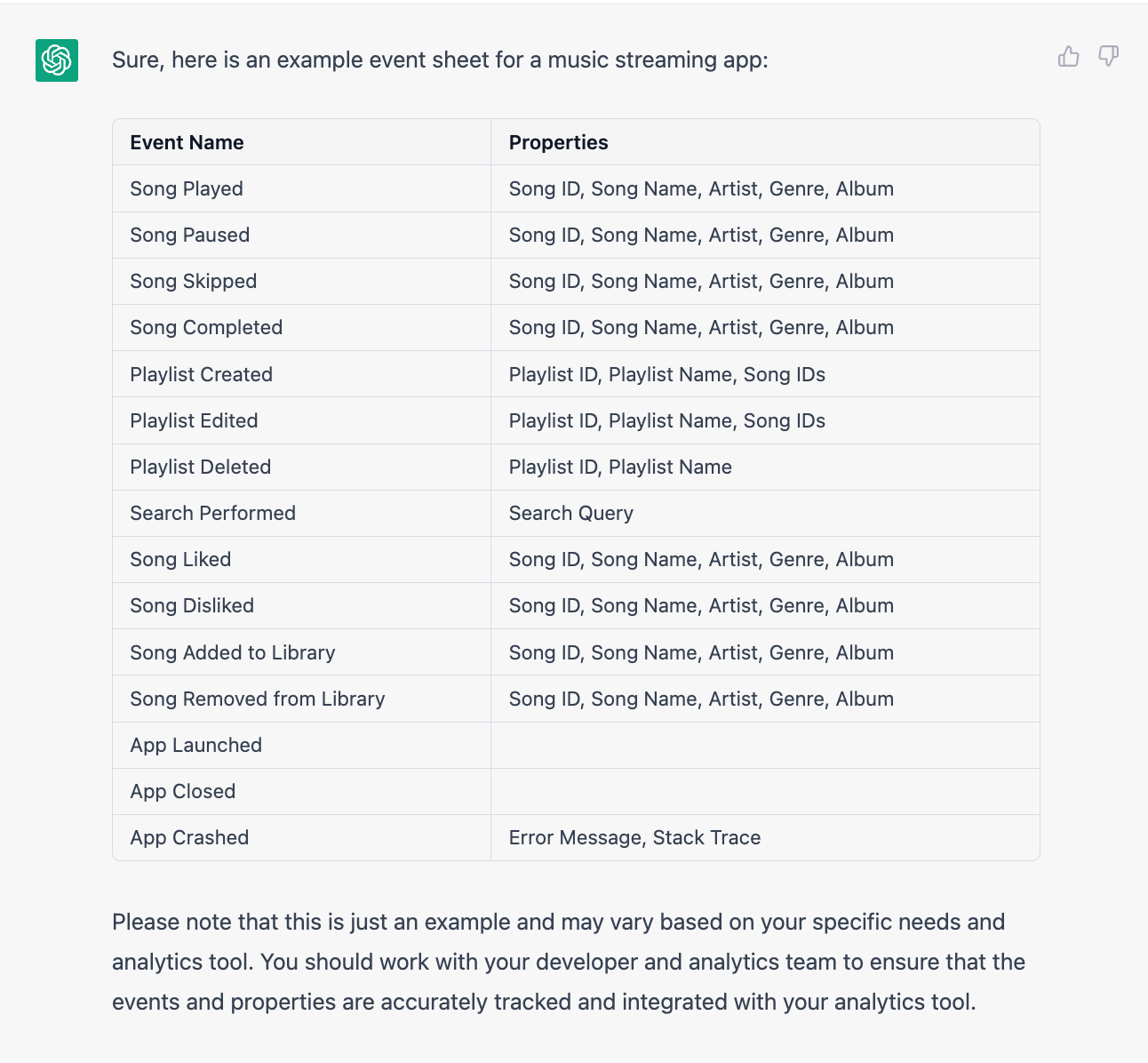
 WATCH HELLOPM COHORT IN ACTION
WATCH HELLOPM COHORT IN ACTION